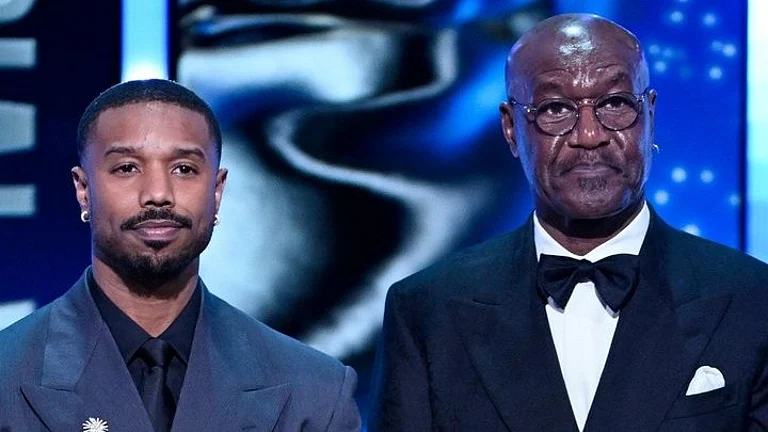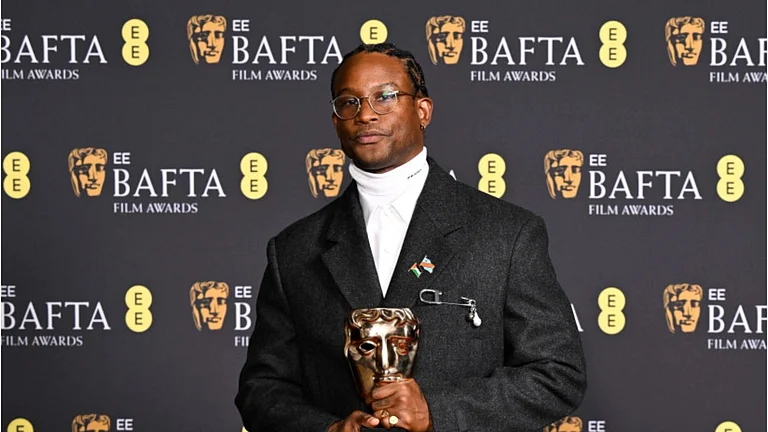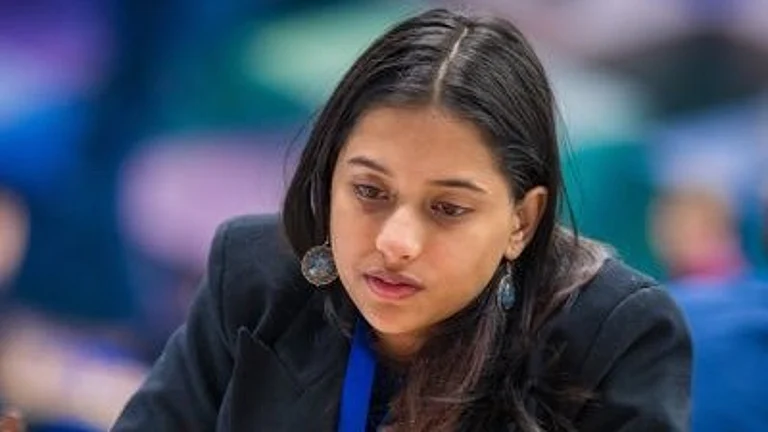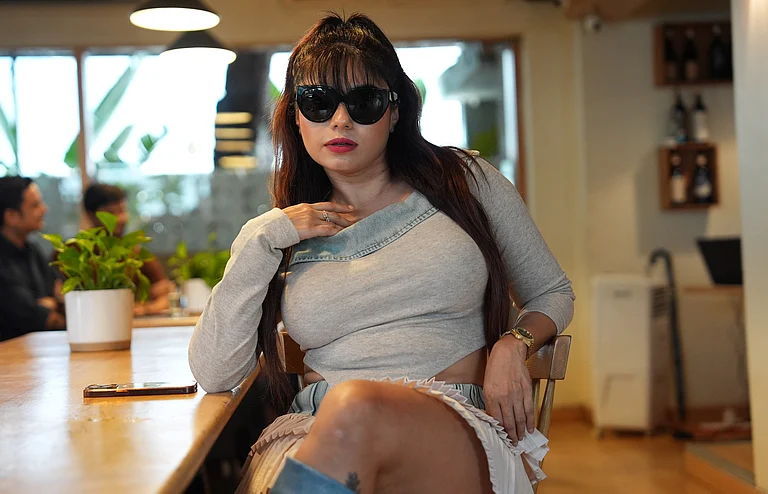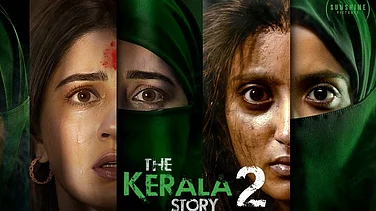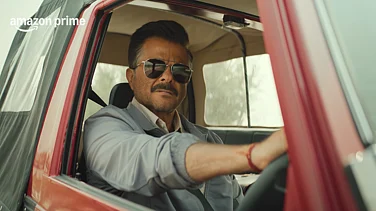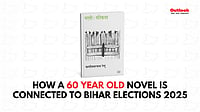The crowd blazed with colours of red, green, white and black, as Kneecap took the West Holts stage at the recently concluded Glastonbury Festival 2025. “I can see the number of Palestinian flags that are here, and it is fucking insane. The BBC editor is going to have some job,” proclaimed Mo Chara (Liam Óg Ó hAnnaidh), in front of the 30,000 people eagerly awaiting their performance. “Sometimes we feel helpless, sometimes we feel like we are not doing enough — and that's probably true. But the difference it makes to people in Palestine when they see people from the other side of the world, this many people”, he shared, and then started chanting, “Free, free Palestine!”
The member of the Northern Irish hip-hop trio Kneecap was recently charged with ‘terrorism’ by the London Metropolitan Police, for allegedly waving a Hezbollah flag at the O2 Forum in Kentish Town in November last year. He was released on unconditional bail after his court appearance last month. Despite the judgement, it seemed that the BBC was not convinced and did not allow live broadcasting of their performance.
After all, this was not Kneecap’s first tryst with authorities. Following a similar demonstration in support of Palestine at Coachella—where the band screamed, “Fuck Israel. Free Palestine!” —those offended called for the group’s US Visas to be revoked. Among them was American TV personality Sharon Osbourne, who also called for prohibiting them from performing at Glastonbury.
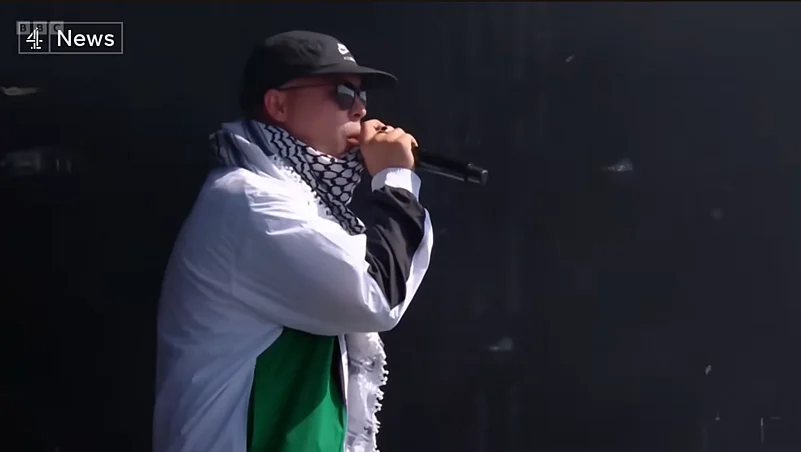
Similar video clips of news anchors and television reporters—complaining about not knowing Kneecap and arguing against their presence at the music festival in Worthy Farm, Pilton, England—played as a montage in the background, as they took the centre stage at Glastonbury. In between their set, the group roared, “Not only are they (Palestinians) being bombed from the fucking skies, they are now being starved to death. Kids being starved to fucking death in this day and age. I don’t have to lecture you people. We are all watching it. We all have a phone. There’s no fucking hiding it: Israel are war criminals.”
BBC, after receiving criticism and allegations of censorship, issued a lukewarm statement that said, "Whilst the BBC doesn't ban artists, our plans ensure that our programming meets our editorial guidelines.” Had the Bob Vylan controversy not happened, the alleged ‘guideline’ would have remained in the dark. The British punk rap duo, who performed before Kneecap and share similar sentiments on Israel’s war on Gaza, also sloganeered—the only difference being that their set was streamed live by the BBC. Bobby Vylan called out to the crowd, "Death, death to the IDF!" and declared, “From the river to the sea, Palestine must be, will be, Inshallah—it will be free!" while the backdrop of the stage read, “United Nations has called it a genocide. The BBC calls it a ‘conflict’.”
After the performance received criticism for inciting hate, including from Prime Minister Sir Keir Rodney Starmer—who said, "There is no excuse for this kind of appalling hate speech,"—the Commons’ Culture, Media and Sport Committee wrote to the BBC, asking for clarity regarding the decision-making process and whether they had considered livestreaming with some delay in this case. In his response, Tim Davie, the Director-General of the BBC, stated that Bob Vylan’s set was deemed ‘high risk’, but categorised as ‘an act whose risk could be mitigated through content warnings on the screen’, which had followed. In the letter, he also wrote, "Kneecap, which was not streamed live, was placed in a higher category of risk." Following Bob Vylan’s act, the BBC decided not to livestream any sets categorised as ‘high risk’.
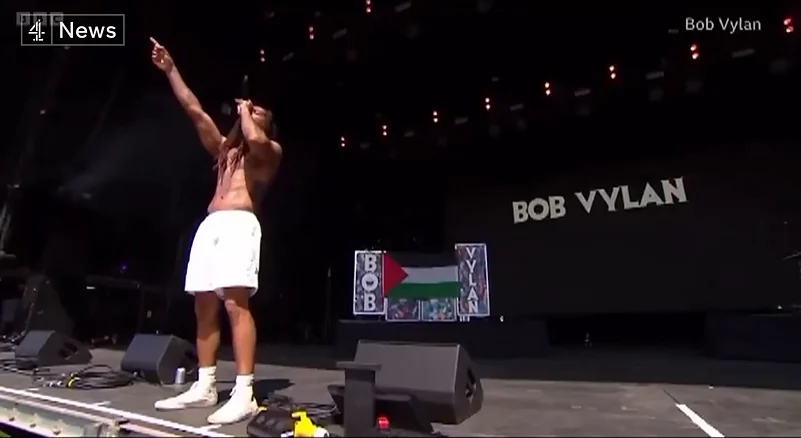
The organisers of Glastonbury—who supported Kneecap’s performance and have consistently welcomed political activism on stage and have origins in hippie and counterculture—also issued a statement against Bob Vylan’s performance, “Their chants very much crossed a line, and we are urgently reminding everyone involved in the production of the Festival that there is no place at Glastonbury for antisemitism, hate speech or incitement to violence.” Responding to the allegations through an Instagram post, the Bob Vylan duo wrote, “We are for the dismantling of a violent military machine. A machine whose own soldiers were told to use ‘unnecessary lethal force’ against innocent civilians waiting for aid. A machine that has destroyed much of Gaza.”
Although Glastonbury started in 1970, it was not until 1980 that the festival was broadcast on television. That year, the music festival was organised alongside the Campaign for Nuclear Disarmament (CND), which shaped Glastonbury’s ideological anti-militarist stance. The show also donated 20,000 pounds from its profits to CND for protesting American nuclear weapons in Great Britain.
For a festival rooted in pacifist politics, to not recognise the artists’ sentiments as political speech raises a lot of questions. Apart from the ‘high risk’ sets, there were also murals at Glastonbury, showing prominent figures boarding a ship to Mars, including Israeli Prime Minister Benjamin Netanyahu. Accompanying the mural was a sign that read: “Block9 and Led By Donkeys have constructed a massive space rocket to carry Musk, Zuckerberg and Bezos to the red planet, and it’s launching from Glastonbury! There’s room on the rocket for a few more souls, so they’re being joined by Trump, Netanyahu, Vance, Farage and Rowling—just some of the people who in recent years made life on Earth more difficult for us.” So, why is there a dissonance?
In 2016, the festival coincided with the U.K.’s referendum on European Union membership and the Brexit decision, which was heavily opposed. The “dispirited” mood of the crowd was noted by many of the performers, including that year’s headliner, Adele. In 2019, British rapper Stormzy called out to the crowd and led chants of “Fuck Boris!”
So, for a music festival with a legacy of political activism—which is still actively focused on anti-establishment sentiments—to then suggest that lines were crossed may well be valid. But what is the premise for deciding that art has become too political? Or does it only seem to be the case when it comes to Israel’s war on Gaza? As Kneecap aptly put it, “One day, it will be controversial for the people, and the bands, and the celebrities who didn't speak up for Palestine.”




